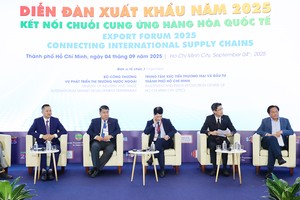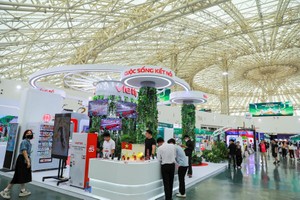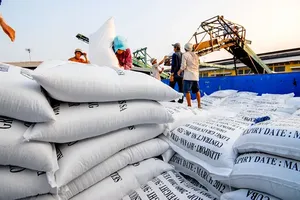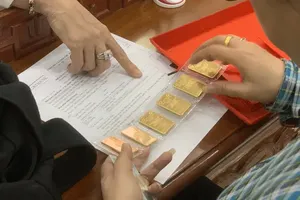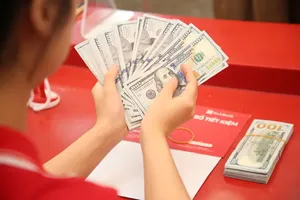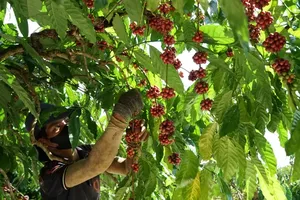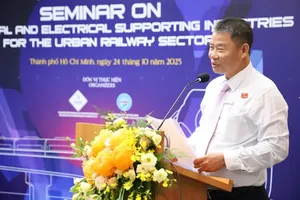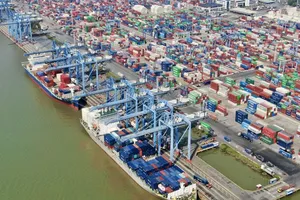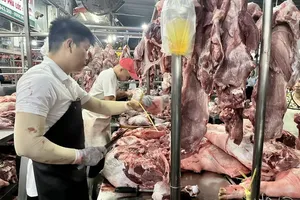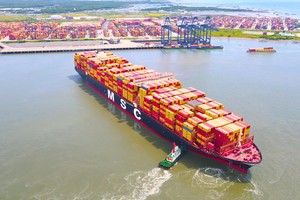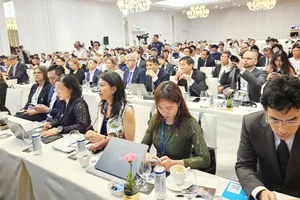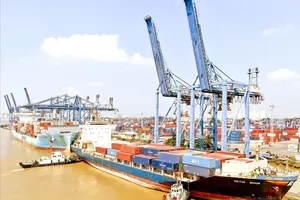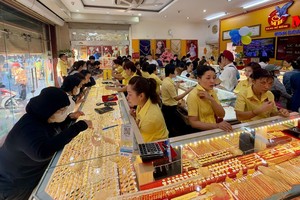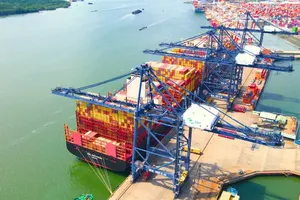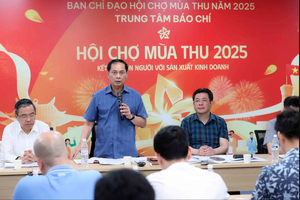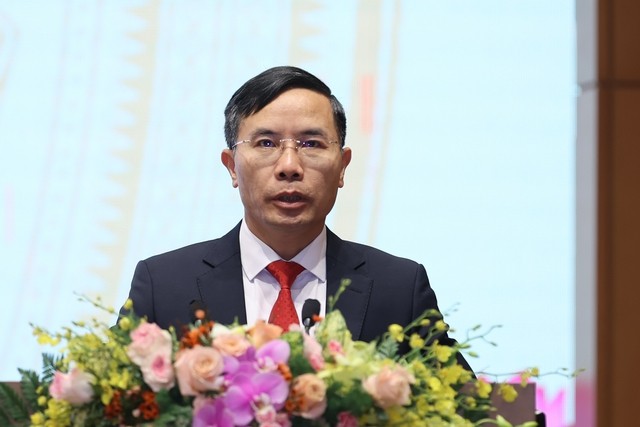
The demand for capital is decreasing because production and consumption of goods have not improved, so capital is becoming redundant at many commercial banks, said meeting participants.
Chairman Pham Duc An of the Board of Members of the Bank for Agriculture and Rural Development (Agribank), said that although deposit interest rates have decreased significantly, people have kept sending their money in the bank.
For instance, Agribank is currently mobilizing VND100 in deposits, it can only lend out more than VND80, even though the bank has proactively adjusted to reduce lending interest rates and implemented credit programs worth VND120 trillion (US$4.86 billion) with lending interest rates 2.5 percent-3 percent lower than normal interest rates to encourage and support customers from the beginning of 2024.
Agribank's revenue in the first two months of 2024 decreased by nearly VND1,200 billion compared to the same period in 2023.
In the coming time, Agribank will continue reducing lending interest rates, restructuring debts to support customers, especially businesses in addition to simplifying lending procedures to improve people’s access to bank credit.
Previously, on the afternoon of March 2, at the Government press conference, Deputy Governor of the State Bank Pham Thanh Ha also said that in the first 2 months of the year, credit growth was slower than the same period of other years, despite quite abundant liquidity.
According to Deputy Governor Pham Thanh Ha, the seasonal factor is the first reason for the slower credit growth. Credit growth in December was strong with a percentage of about 4 percent, then January and February were the Tet holiday, so credit activities decreased and loan activities did not grow like in the fourth quarter of last year. Plus, the world economy has not really prospered, Vietnam’s main export markets have not developed strongly, affecting output and export while the domestic market is still difficult, so demand for credit is also decreasing.
However, there is also a good sign that credit decreased in January but decreased less in February, and credit demand in February increased. Thus, credit growth is expected to increase further in March. The State Bank will continue to monitor to find specific solutions to promote credit growth, and support borrowers and the economy.
Notably, Chairman Pham Van Thanh of Vietnam Petroleum Group (Petrolimex) suggested the Government and the Prime Minister direct the development and promulgation of a new decree on petroleum trading to replace the Government’s Decree No. 83, 95, 80 aiming to improve the quality of petroleum trading hubs, through improving conditions for distributors in warehouses and businesses.
Mr. Pham Van Thanh also proposed continuing to improve the effectiveness of state management in petroleum business activities, drastically applying electronic invoices after each sale according to the Government’s Decree 123 in retailing of petroleum. Direct connection of data from petroleum depots and petroleum pumps to customs and tax authorities will be implemented and it is necessary to identify the agency which is responsible for managing and operating petroleum business activities.
Regarding national petroleum reserves, Petrolimex continues to propose to the Prime Minister to direct relevant ministries and agencies to soon adjust the cost for the preservation of national reserves in accordance with reality, because the current reserve fee was issued in 2003, and it has been 21 years without any changes.
He also proposed that the Government and the Prime Minister have mechanisms and policies to encourage petroleum businesses to shift towards green and clean energy. Promulgation of policies and mechanisms should be done to encourage businesses to develop rooftop solar power and there should be standards and regulations which are synchronous with approved procedures for fire prevention and fighting across the country with rooftop solar power installation projects on warehouse systems and petroleum ports.
Additionally, there should have policies to support petroleum businesses while studies on green transition projects, ammonia gas, and green hydroxide should be carried out and implemented.
